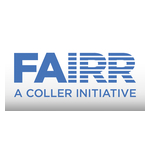COP15 ‘Paris Agreement for Nature’ Will Increase Pressure on Global Meat and Dairy Producers

$70 trillion-backed FAIRR investor network finds meat and dairy industry failing to manage its biodiversity impacts, undermining targets of a new global deal for nature and exposing companies to increased regulatory, legal and reputational risks
New research today shows global meat and dairy sector performs very poorly on three biodiversity metrics expected to be part of a legally binding “Paris Agreement for nature” at COP15: Deforestation, nutrient pollution and freshwater conservation
“Investors are focused on material financial risks for companies, and a global agreement on nature at COP15 would see the intensive animal agriculture industry face increased regulatory, legal, tax and reputational risks” says Jeremy Coller, Chair of $70 trillion FAIRR investor network
LONDON–(BUSINESS WIRE)–The world will gather in Montreal tomorrow to discuss a ‘Paris Agreement for Nature’ (COP15) including a set of proposed targets to halt and reverse global biodiversity loss. However, new data from FAIRR today shows the world’s biggest meat and dairy producers are currently unprepared to meet targets expected in such a deal.
The data comes from the release of the fifth annual Coller FAIRR Protein Producer Index (the index) which assesses 60 publicly-listed animal protein producers worth a combined $360 billion (49 primarily produce meat, eggs and dairy, 11 are aquaculture companies), against ten environmental, social and governance (ESG)-related factors.
Jeremy Coller, Chair of FAIRR initiative and CIO of Coller Capital, said,
“From rainforests to rivers, meat & dairy producers are failing to manage their biodiversity impacts. Industrial animal agriculture is the number one cause of deforestation and the number one user of fresh water globally. Investors are focused on material financial risks for companies, and a global agreement on nature at COP15 would see the intensive animal agriculture industry face increased regulatory, legal, tax and reputational risks.
“Change is possible. The industry appears to be open to it. And with the Food and Agriculture Organization of the United Nations making a significant announcement at COP27, committing to develop an agricultural roadmap to 1.5C by COP28, we can be confident this trend will continue to gain momentum as companies adapt to the inevitable transition to a more sustainable food system.”
Rachel Crossley, Head of Stewardship, Europe, BNP Paribas Asset Management, said:
“As the reality hits home that the loss of biodiversity poses as great a risk to global economic stability as climate change, we expect regional and national governments, as well as capital markets, to take increasingly robust action to drive fundamental changes in those sectors that threaten the water, soils, and forests we all depend on. The evidence in the Coller FAIRR index published today should remove any doubt that the meat and dairy sector must urgently improve its practices to eliminate deforestation and vastly improve its management of waste and fertiliser.”
FAIRR’s findings are key to at least three of the proposed targets in the ‘Post-2020 Global Biodiversity Framework’ being discussed at COP15. The table below highlights the proposed targets alongside relevant findings from FAIRR’s Index report:
COP15 proposed target
Coller FAIRR index finding
Target 2 to protect freshwater and related ecosystems.
* 87% of meat, egg & dairy firms (41 of 47) do not assess if their farms are located in water-stressed areas, despite most farms being in regions already suffering from extremely high-water stress, or expected to in future. This includes Maple Leaf and Cal Maine Foods.
* Just two companies, Marfrig and WH Group provide guidance and technical assistance to feed farmers to help manage water availability and risk – despite 98% of meat & dairy’s water footprint coming from feed farming.
Target 7 to reduce pollution including reducing nutrients (such as nitrogen and phosphorus) lost to the environment by least half.
* 83% of meat, egg and dairy firms (39 of 47) do not require suppliers to have management plans to prevent nitrogen and phosphorus from animal waste polluting waterways and stimulating toxic algae, including JBS and Tyson.
* 70% of Index companies also pose a risk to the environment through antibiotic waste, altering bacterial communities that underpin ecosystems.
Target 8 to minimize climate change’s impact on biodiversity by, for example, preventing deforestation.
* at least 60% of Index companies source soy for feed from areas at high risk of deforestation and have still not set deforestation targets. Even high-street brands like Nestlé and McDonald’s with strong deforestation commitments continue to use suppliers such as Fujian Sunner and New Hope that do not track deforestation.
Jennifer Anderson, Co-Head of Sustainable Investment and ESG, Lazard, said:
“Making up ~1/3 of total global GHG emissions, the current food system presents interesting investment opportunities to drive efficiency. It is increasingly important for us as investors to better understand the material risks that climate change and biodiversity pose to the sustainability of a company’s financial performance. The Coller FAIRR Index provides a useful benchmark for investors to reliably assess and compare companies across the protein supply chain.”
Diane Roissard, Biodiversity Lead, La Banque Postale Asset Management, said:
“Financial institutions in France are already required to disclose biodiversity-related risks and strategies for reducing negative impacts. An agreement on a global biodiversity framework at COP15 will add further urgency and importance to companies’ disclosure and performance on biodiversity.
“With the likelihood of significant new regulation on the horizon, it is worrying to see FAIRR’s data reveal such large gaps in reporting from meat and dairy firms on risks from deforestation to nutrient pollution. These livestock companies must take urgent action to reassure investors that these material risks are being properly managed, and to ensure that future disclosures will satisfy investors’ own reporting requirements.”
Contacts
Media
For more information, including interviews and comment:
Mike Marshall, ESG Communications
t: +44 (0)7728 816 426 | e: mikem@esgcomms.com








